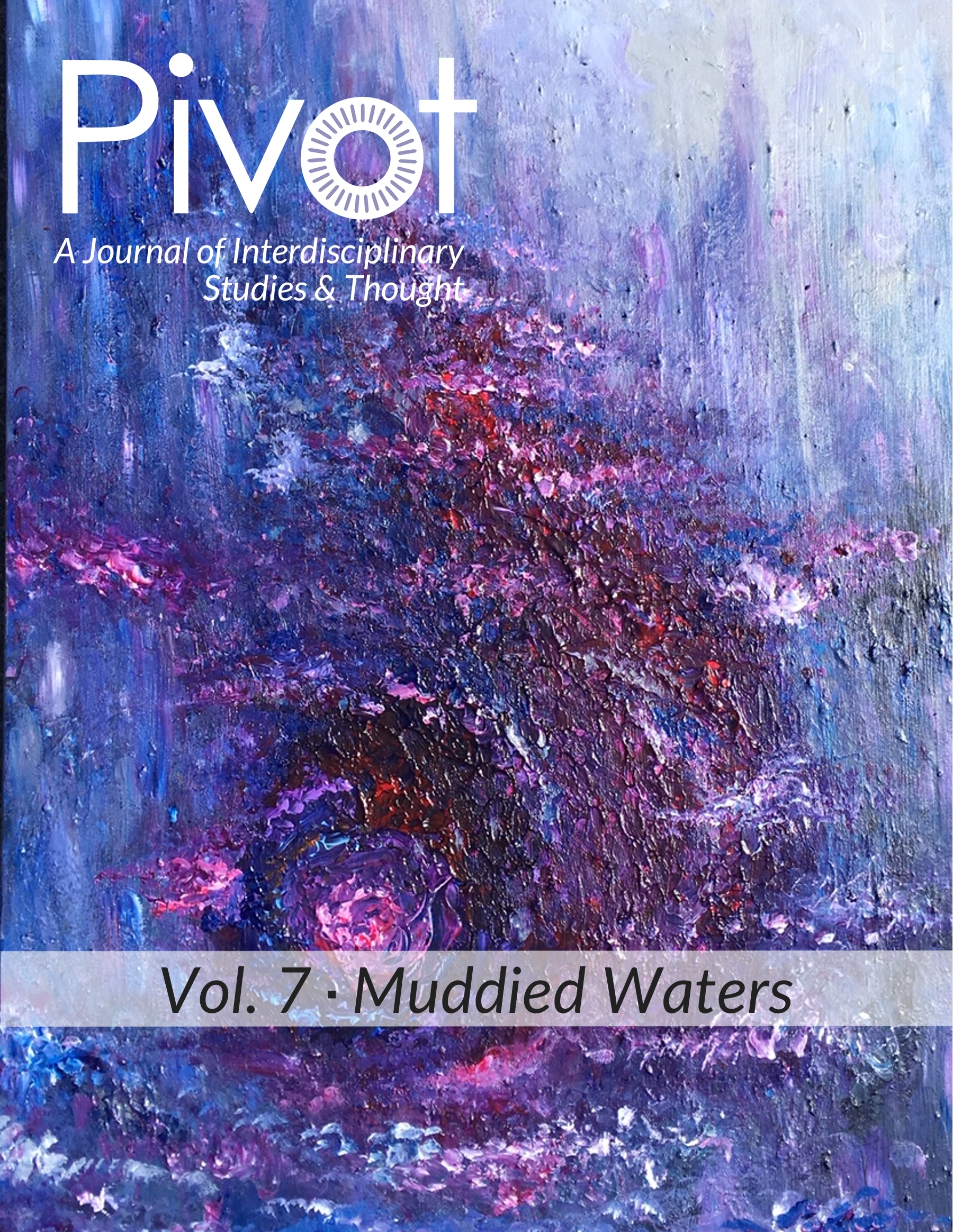Marilynne Robinson’s Housekeeping: Sylvie’s Fundamental Mentorship through New Western Historicism and Ecofeminist Criticism
DOI:
https://doi.org/10.25071/2369-7326.40301Abstract
In the novel Housekeeping, Marilynne Robinson discusses main character, Sylvie’s, relationship with nature in a way that revises what many New Western historians view as the Old West’s destructive ideology toward nature. Sylvie lives in opposition to what is seen as the aggressive mannerisms of Old Western males, individuals who have attempted to conquer both women and nature through their disregard for the female histories of the Old West as well as through their degradation of the faultless Western land. An effort that brings together both of these ideas, a concept that connects the maltreatment of women as well as of nature throughout history, ecofeminist philosophies are, in turn, relevant to a discussion of Robinson’s Sylvie and her New Western principles. Both viewpoints express a historical overlap of women and nature; therefore, Sylvie’s actions, which contradict the conquering mentalities of the Old West, also align with fundamental ecofeminist principles. Her actions throughout the novel possess an understanding and admiration of nature’s character as well as a voice that disagrees with the mistreatment that it receives.
References
Bergthaller, Hannes. "Like a Ship to Be Tossed: Emersonian Environmentalism and Marilynne Robinson's Housekeeping." Culture, Creativity and Environment: New Environmentalist Criticism, edited by Fiona Becket and Terry Gifford, Rodopi, 2007, pp. 75-98.
Bohannan, Heather. "Quest-tioning Tradition: Spiritual Transformation Images in Women's Narratives and Housekeeping, by Marilynne Robinson." Western Folklore, vol. 51, no. 1, 1992, pp. 65-79. JSTOR Arts and Science III. DOI: https://doi.org/10.2307/1499645
Carson, Rachel Louise. Silent Spring. Hamish Hamilton, 1962.
Crisu, Corina. "At Home with Transience: Reconfiguring Female Characters of the American West in Marilynne Robinson's Housekeeping". This Life, This World: New Essays on Marilynne Robinson's Housekeeping, Gilead, and Home, edited by Jason Stevens, Brill, 2015, pp. 38-58.
Devine, Maureen. Women and Nature: Literary Reconceptualizations. Scarecrow, 1992.
Diamond, Irene, and Gloria Feman Orenstein. "Introduction." Reweaving the World: the Emergence of Ecofeminism, Sierra Club, 1999, pp. ix-xv.
Gernes, Sonia. "Transcendent Women: Uses of the Mystical in Margaret Atwood's Cat's Eye and Marilynne Robinson's Housekeeping." Religion & Literature, vol. 23, no. 3, 1991, pp. 143-165. JSTOR Arts and Sciences V, www.jstor.org/stable/40059493.
Handley, George B. "Religion, Literature, and the Environment in the Work of Marilynne Robinson." This Life, This World: New Essays on Marilynne Robinson's Housekeeping, Gilead, and Home, edited by Jason Stevens, Brill, 2015, pp. 59-90. DOI: https://doi.org/10.1163/9789004302235_005
Kheel, Marti. "Ecofeminism and Deep Ecology: Reflections on Identity and Difference." Reweaving the World: the Emergence of Ecofeminism, edited by Irene Diamond and Gloria Feman Orenstein, Sierra Club, 1999, pp. 128-137.
Lyons, Greg. "The New West: Introduction." Literature of the American West: A Cultural Approach, Longman, 2003, pp. 419-426.
Magagna, Tony R. "Erased by Space, Ignored by History: Place and Gender in Marilynne Robinson's West." Western American Literature, vol. 43, no. 4, 2009, pp. 345-71. Project Muse. DOI: https://doi.org/10.1353/wal.2009.0002
Maszewska, Jadwiga. "Ecofeminist Themes in Marilynne Robinson's Housekeeping." American Studies in Scandinavia, vol. 28, 1996, pp. 63-69. www.rauli.cbs.dk/index.php/assc/article/view/1128/1131. Accessed 1 Nov. 2017. DOI: https://doi.org/10.22439/asca.v28i1.1128
Mies, Maria, and Vandana Shiva. "Introduction." Ecofeminism, Zed Books, 2014, pp. 1-21.
Newman, Judie. "Solitary Sojourners in Nature: Revisionary Transcendentalism in Alison Lurie's Love and Friendship and Marilynne Robinson's Housekeeping." The Insular Dream: Obsession and Resistance, edited by Kristiaan Versluys. Free UP, 1996, pp. 303-323.
O'Brien, Sheila Ruzycki. "Housekeeping: New West Novel, Old West Film." Old West--New West: Centennial Essays, edited by Barbara Howard Meldrum, U of Idaho P, 1993, pp. 173-83.
Robinson, Forrest G. "Clio Bereft of Callope: Literature and the New Western History." The New Western History: The Territory Ahead, edited by Forrest G. Robinson, U of Arizona P, 1998, pp. 61-98.
Robinson, Marilynne. Housekeeping. Farrar Straus Giroux, 1980.
Robinson, Marilynne. Mother Country. Farrar, Straus & Giroux, 2010.
Robinson, Marilynne. "Surrendering Wilderness." The Wilson Quarterly, edited by Richard Solash, 1998. archive.wilsonquarterly.com/essays/surrendering-wilderness. Accessed 1 Nov. 2017.
Vance, Linda. "Ecofeminism and the Politics of Reality." Ecofeminism: Women, Animals, Nature, edited by Greta Gaard, Temple UP, 1993, pp. 118-145.
White, Richard. "It's Your Misfortune and None of My Own": A New History of the American West, U of Oklahoma P, 1991.
Worster, Donald. "Beyond the Agrarian Myth." Under Western Skies: Nature and History in the American West, Oxford UP, 1992, pp. 3-18.

